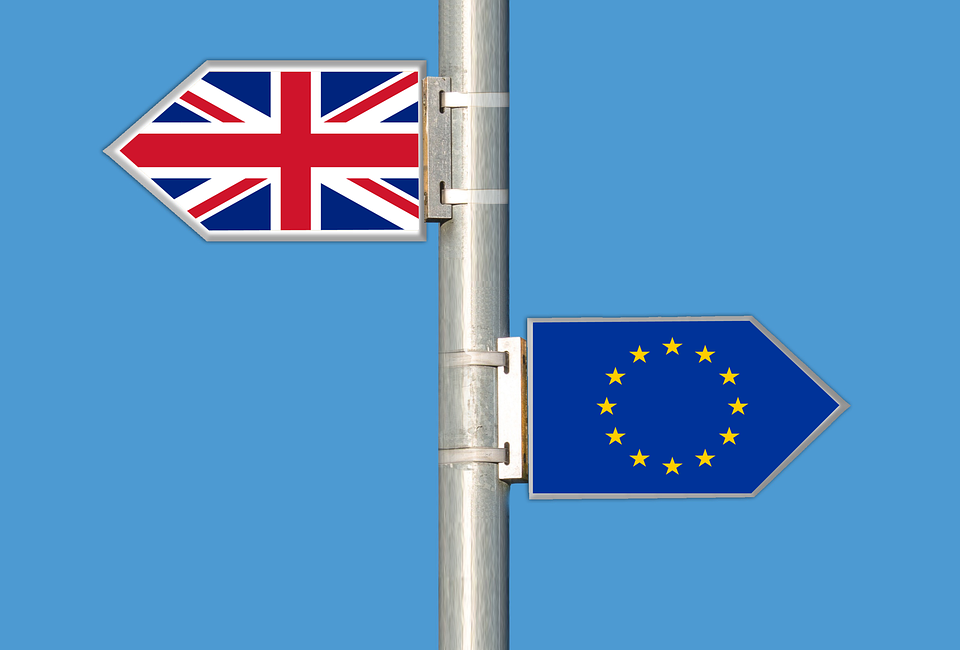In this article, Ian Duffy, CEO of Accelerated Payments gives his opinion on the impact that Brexit will have on various areas of businesses trading with or through the UK.
From 1 January 2021, regardless of the outcome of the ongoing negotiations, the UK will no longer be part of the EU’s Single Market and Customs Union. This means any business that moves goods from, to or through the UK will be subject to a range of new customs formalities, SPS checks and other regulatory requirements, that do not apply in any form today to such trade.
In 2019, Ireland exports to Great Britain for example, were €13,524m and intra-EU trade accounted for €72,601m (48%) of total exports. There were €52,970m of imports from the EU in 2019, representing 59% of total imports and €18,746m (21%) from Great Britain. Considering much of this trade will pass through Great Britain, these figures really highlight the enormity of logistics concerns, particularly around paperwork, VAT and excise duties.
What does this mean for the global markets?
Markets do not like negatives, whether they are short term or long term. Negatives have, as the name suggests, negative impact business on a micro and macro level. There is the concern that, while markets see uncertainty as a concern business will find it harder to access credit or insurance. For those companies who have spent years building value in their trading track record will see barriers and obstacles to business.
Whilst in maybe 5- or 10-years’ time, the UK may reflect and see it being the best decision made, it is still a decision to isolate. Each decision made or process devised will have an impact. Nobody knows what the outcome will be.
What does this mean for Irish businesses?
For the past 40 years, we have benefitted from the ease of trade and free movement. Brexit is, in part a reverse for this, barriers being created rather than removed. When you reverse back, small things will have been forgotten, you ultimately increase complexity and increase work across every single business transaction. I think that people will find a way through it, with headaches in the first three to six months as business and trade become stabilised. However, I do not think that any import or export company trading with the UK, from an Irish perspective, is seeing anything remotely positive or even neutral in the immediate impact of Brexit. It is all negative, manageable but negative.
Businesses should have been in planning for the last 12 to 18 months on the assumption of no deal. There is a small chance of this happening, so if you have planned for this eventuality, everything else will be prepared for. Whilst much of the focus has been on UK companies looking further overseas, we have also seen Irish companies doing a similar thing. They would have been crazy not to analyse the stability of their supply chain and their costs of trade. If you look at the world trade organisation standard tariff package that typically applies which is 10%, suddenly trading with the UK becomes automatically 10% more expensive. Irish companies have started to explore sourcing goods from Eastern Europe, for example. Again, that is not good for UK businesses.
Boris Johnson states that the UK should increase trade in Asia, but that is going to take time. It will likely take up to three to five years. Certainly, it is not something that is going to happen overnight.
What does this mean for logistics and paperwork?
Currently, when you order a parcel from within the EU it is not treated as cross border. There is only VAT payable in the origin market with no complications and as usually calculated as part of the online shopping experience it is considered simple, easy, with everything already paid for. When a business buys from China it must be cleared through customs (calculating all applicable fees specific to the item type) and VAT applied to the value of the consignment (including the additional fees) made payable to the Tax office of the destination country, in this case Revenue. Customs is currently localised within logistics firms and they have the responsibility to ensure that the VAT is collected, and that duties and excise are paid. You will have an additional charge of this on top of the existing price you have paid to the tune of 12-14% additional, based on consignment value and commodity type and code.
I am also Chairman of a logistics company where approximately two thirds of our inbound traffic – to the tune of 40,000 parcels a day, comes from the UK. We have had to assume a worst-case scenario – that this is going to be no deal. Therefore, we have assumed that there will be duties payable on all imports and exports. As such, we have had to streamline the presentation of information and the calculation of any taxes that are due. We are putting as much process in place as possible to ensure that goods will not be held over borders. Everything must be prepared and double checked well in advance of the goods and services crossing, or even arriving at the border. So that is 40,000 parcels a day that will have to be individually assessed as to whether tariffs are applicable.
One of the things that is not covered in today’s discussions is, what happens if goods get held up at the border? What are the implications of that? What happens if it is perishable goods? There is a lot of movement of dairy or short shelf life products between the UK into Ireland. Whilst they have managed to clip hours off in terms of next day deliveries, what happens if the paperwork is not right and takes up to two to three days to fix.
How can technology help?
All these checks cannot be manual, they must be automated. Therefore, there is increased emphasis and importance of correct information being given on goods. It is no longer sufficient to say amazon.co.uk shipping a computer from UK to an Irish client. They will need to automatically determine that as this is a computer, the applicable tariffs are this amount and therefore will needed to be calculated and collected in advance of the border or within a bonded warehouse before they are able to be released to the client. That is the implication and will be the reality. Where you may have been cursory of what is in the box before, now business will need to be explicit down to the micro basis.
What does this mean for Accelerated Payments?
And so, for us at Accelerated Payments it raises a couple of questions. A receivable +VAT may no longer be the total cost. What are the duties that are going to be application on this transaction? Have the goods been correctly identified in advance? Has the paperwork been presented correctly at the border so that the good or services can be transmitted through? And all that does is create doubt which is never good. For Irish companies who are exporting to the UK – things just got a lot more complicated.
As an individual receivable funder, we will need to check the receivables to see if there are duties applicable now in terms of cross-border trading. Has the VAT been calculated correctly, if relevant? What are the additional costs associated with additional debts? Is that going to affect the company’s ability to receive the goods? Is there going to be a dispute?
The interesting thing to consider is that currently the UK and Ireland consider themselves the same market. Come 1st January, according to world tariffs, each will consider the other an equivalent to Korea. Accelerated Payments can work with all of them!





